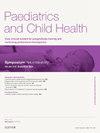呼吸道合胞病毒(RSV):预防策略的最新进展和对未来的展望
Q3 Medicine
引用次数: 0
摘要
呼吸道合胞病毒(RSV)具有重大的全球影响,特别是在免疫系统不成熟的易感婴儿中。这一群体中住院率和死亡率的升高凸显了这一重大风险。直到2022年,唯一可用的预防药物是昂贵的单克隆抗体帕利珠单抗(palivizumab),需要在冬季每月注射,限制了高风险婴儿的使用。最近,两种用于婴儿的RSV预防药物获得了突破性的批准:延长半衰期的单克隆抗体nirsevimab (Beyfortus®)和基于蛋白质的母源疫苗RSVpreF (Abrysvo®)。在获得授权后,包括西班牙、法国和意大利在内的几个欧洲国家在2023/24 RSV季节引入了nirsevimab。相比之下,在英国和阿根廷,母体呼吸道合胞病毒疫苗被纳入产前免疫规划。鉴于RSV预防形势的迅速变化,本综述为重要的临床试验和新出现的真实世界证据提供了及时的见解;强调目前的预防措施相当有效,并考虑正在发展的预防措施。我们还考虑了对国民健康服务(NHS)的潜在影响,包括疾病负担的变化,以及儿科医生和更广泛的多学科团队在加强公共卫生政策、支持免疫运动和促进未来研究方面的作用。本文章由计算机程序翻译,如有差异,请以英文原文为准。
Respiratory syncytial virus (RSV): recent advances in preventative strategies and visions for the future
Respiratory syncytial virus (RSV) has a significant global impact, especially amongst vulnerable infants with immature immune systems. Elevated hospitalization and mortality rates within this group underscore this substantial risk. Until 2022, the only available preventive was the costly monoclonal antibody, palivizumab, which requires monthly winter injections, limiting its use to high-risk infants. Significant progress has led to the recent ground-breaking approval of two further RSV preventatives for infants: an extended half-life monoclonal antibody, nirsevimab (Beyfortus®) and a protein-based maternal vaccine, RSVpreF (Abrysvo®). Following authorization, several European countries, including Spain, France and Italy introduced nirsevimab during the 2023/24 RSV season. In contrast, the maternal RSV vaccine was integrated into antenatal immunization programmes within the United Kingdom and Argentina. Given the swiftly changing landscape of RSV prevention, this review offers timely insights into significant clinical trials and emerging real-world evidence; emphasizing the considerable effectiveness of current preventatives, as well as considering those under development. We also consider the potential impact on the National Health Service (NHS), including a changing disease burden, and the role of the paediatrician and broader multidisciplinary team in enhancing public health policy, supporting immunization campaigns and contributing to future research.
求助全文
通过发布文献求助,成功后即可免费获取论文全文。
去求助
来源期刊

Paediatrics and Child Health (United Kingdom)
Medicine-Pediatrics, Perinatology and Child Health
CiteScore
1.20
自引率
0.00%
发文量
70
 求助内容:
求助内容: 应助结果提醒方式:
应助结果提醒方式:


